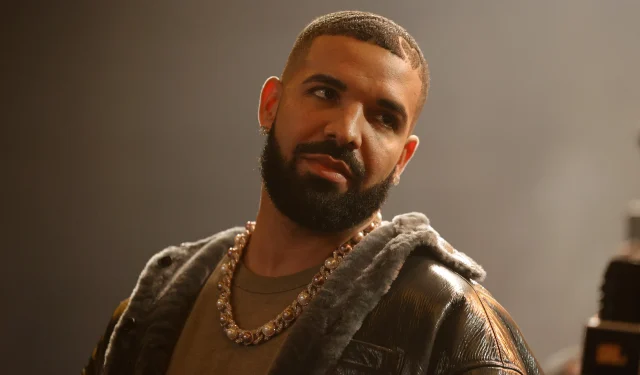Drake’s Controversial Feud with Kendrick Lamar Heads to Court
In his latest diss track, “Family Matters,” Canadian rapper Drake delivers sharp criticisms aimed at Kendrick Lamar, alleging domestic abuse and neglect of fatherly duties. The provocative lyrics question the legitimacy of Lamar’s actions, with lines like, “When you put your hands on your girl, Is it self-defense ‘cause she bigger than you?” and “They hired a crisis management team. To clean up the fact that you beat on your queen,” igniting a fierce exchange between the two hip-hop giants.
Universal Music Group’s Legal Defense
On Monday, Universal Music Group (UMG) filed a motion to dismiss a defamation lawsuit initiated by Drake, arguing that such diss tracks are understood to represent exaggerated opinions rather than factual claims. UMG contends that the public does not interpret the contentious lyrics literally and that context is pivotal in understanding the nature of rap battles.
UMG’s documentation asserts that “Drake lost a rap battle that he provoked and in which he willingly participated,” pointing out that instead of taking his defeat in stride, he has resorted to suing his own label in a misguided attempt to seek validation.
Background of the Feud
The legal battle traces back to Drake’s collaboration with J. Cole, “First Person Shooter,” released in 2023, wherein they collectively dubbed themselves the “big three”along with Lamar. This claim was rejected by Lamar in his response track, “Like That,” leading to a series of escalating diss tracks filled with personal attacks. The feud reached notable heights with Lamar’s May release gaining him recognition as the victor of this lyrical contest.
Artistic Expression vs. Defamation
UMG emphasizes that “Not Like Us” maintains a style that is typical within rap, characterized by “epithets, fiery rhetoric, and hyperbole.” The accompanying music video suggests that the artistic content is intended for entertainment and exaggeration, given visuals like Lamar speaking to a clown and echoing lines from the film *The Sixth Sense*, effectively representing his perceived triumph over Drake.
Moreover, UMG argues that the statements made in such diss tracks must be interpreted within the larger context of known controversies involving the artists. UMG notes that Drake himself acknowledged Lamar’s references to their respective controversies, specifically surrounding claims made about his interactions with underage actress Millie Bobby Brown.
Legal Precedents Supporting UMG
Drawing comparisons to previous legal cases, UMG likens diss track statements to correspondence typically found in opinion sections, where defamation claims are often dismissed due to the expected subjective nature. They reference a 1995 case where a defamation lawsuit was thrown out, reinforcing that the broader context must be taken into account when interpreting the intent behind statements.
In a more recent ruling, a federal judge supported Barstool Sports’ defense against a defamation claim, highlighting that statements perceived in a heated dispute can be seen as opinions rather than factual claims. This precedent strengthens UMG’s position as they seek to dismiss Drake’s lawsuit.
Accusations and Counterclaims
UMG’s defense also includes claims that the provided statements must meet the standard of being knowingly false or made with reckless disregard for the truth. Their legal representative, Rollin Ransom, maintains that there is no evidence that UMG intended to publish false statements about Drake; rather, they intended to contribute to the artistic expression found in diss tracks, akin to “Family Matters” where Drake accuses Lamar of similar grievances.
In a concerning turn of events, shortly after Lamar’s latest release, an incident occurred where Drake’s security guard was shot outside his Toronto residence. Drake alleged that Lamar’s actions amounted to harassment, allegedly inciting violence against him.
Drake’s Allegations and UMG’s Response
Drake’s legal action includes accusations that UMG aimed to undermine his music and brand to gain leverage in negotiations. He claims that the label orchestrated covert payments to enhance the promotion of “Not Like Us” through third-party channels, alleging that bots were used to elevate the song’s streaming numbers on Spotify.
In response, UMG contends that Drake has failed to provide substantial evidence supporting these claims of unethical promotional practices.
Conclusion: Ongoing Legal Battles
Speaking on behalf of Drake, attorney Michael Gottlieb stated that UMG seeks to downplay the severity of the situation by framing it as a mere rap battle, diverting attention from the real issue: accountability for profiting from dangerous misinformation that has resulted in violence.
Recently, a court dismissed UMG’s request to pause the discovery process in this case, as Drake pursued the opportunity to question UMG representatives about their promotional practices related to the controversial diss track.


